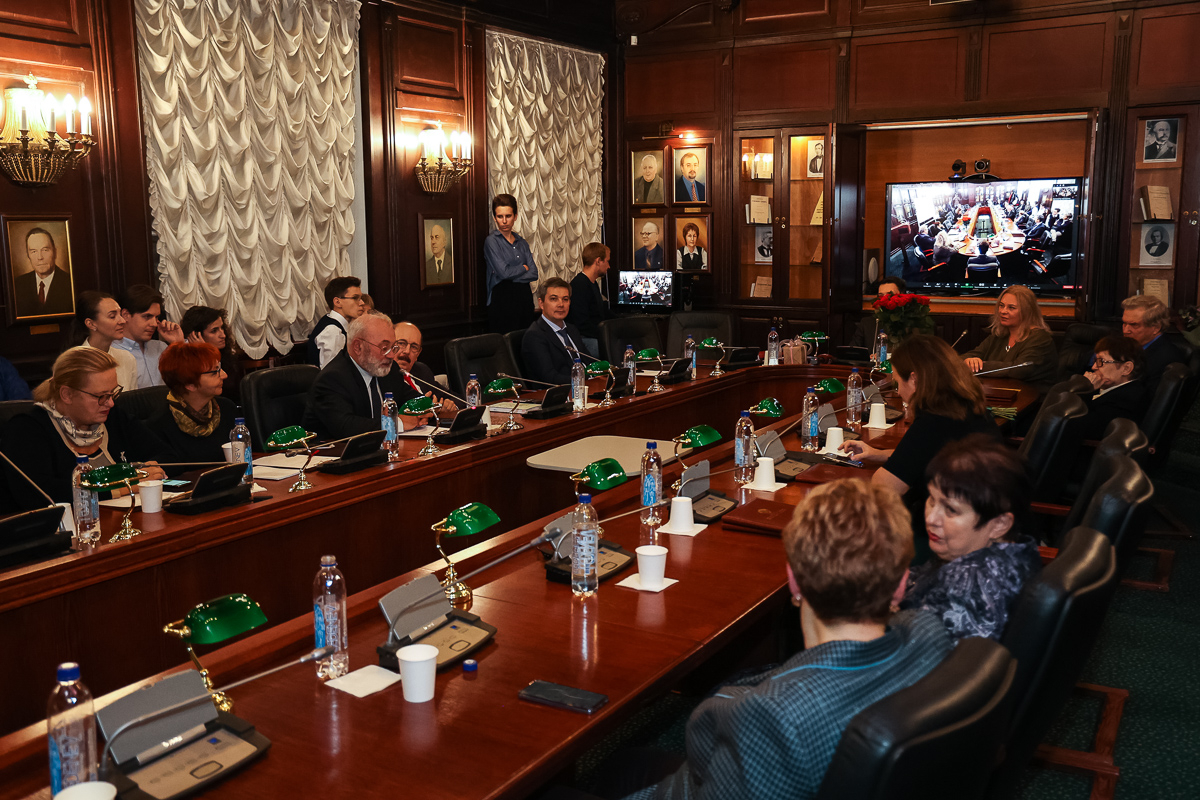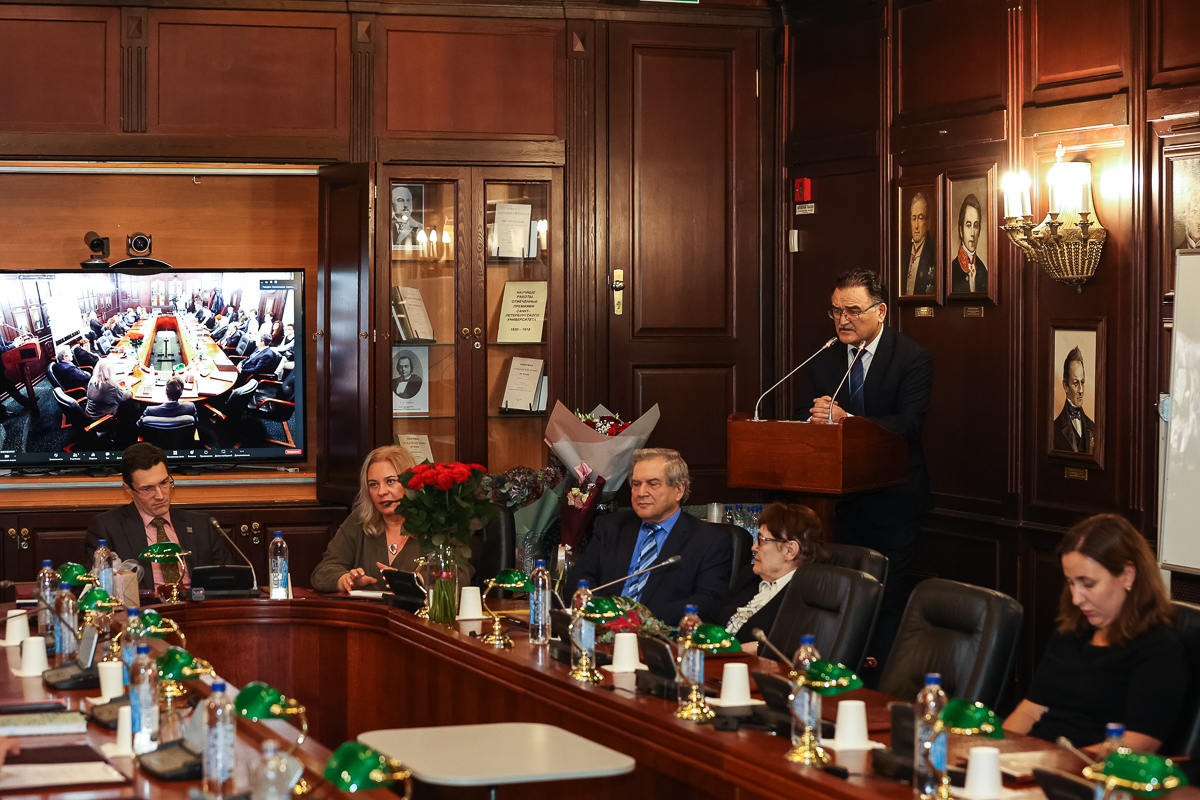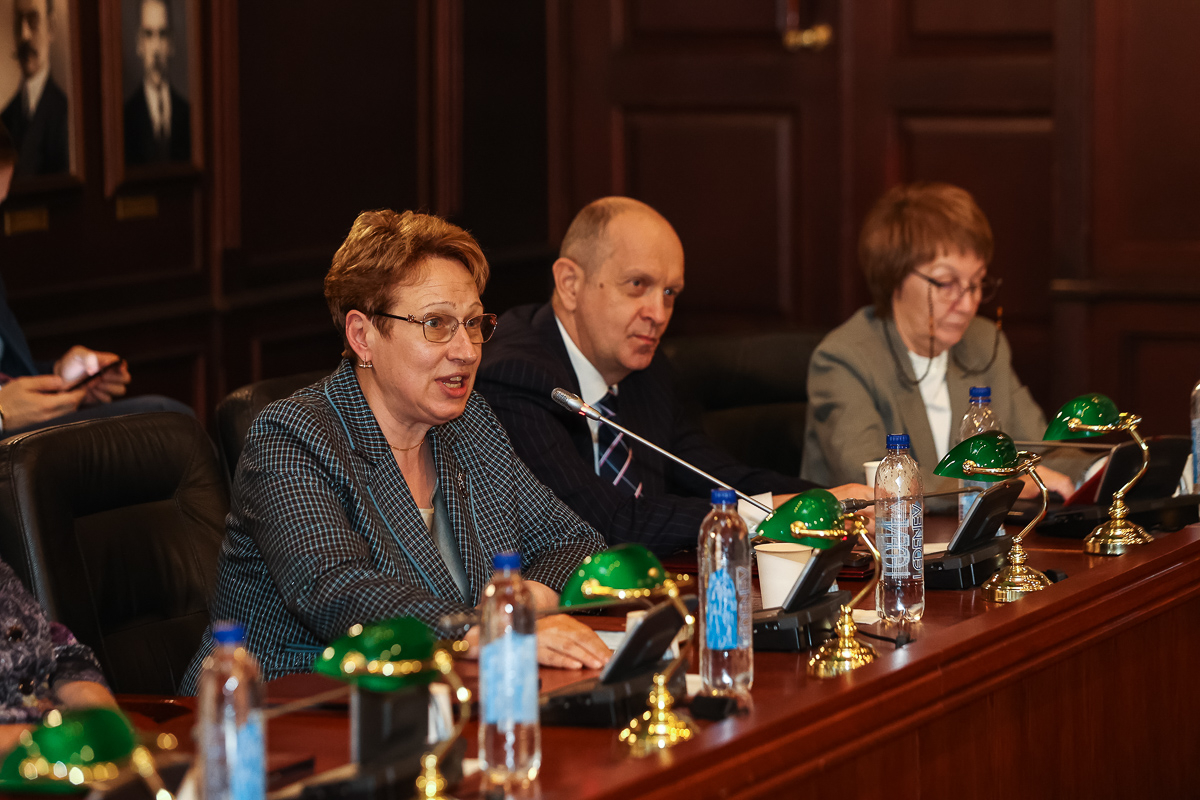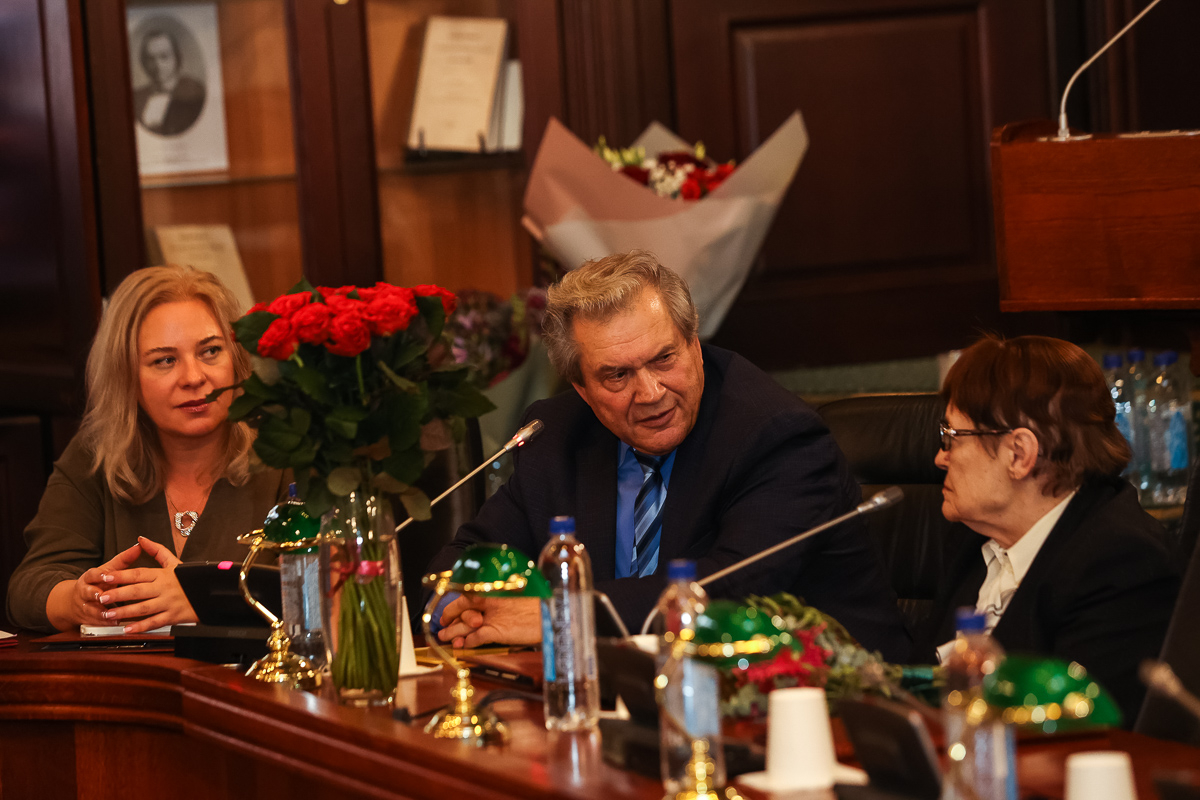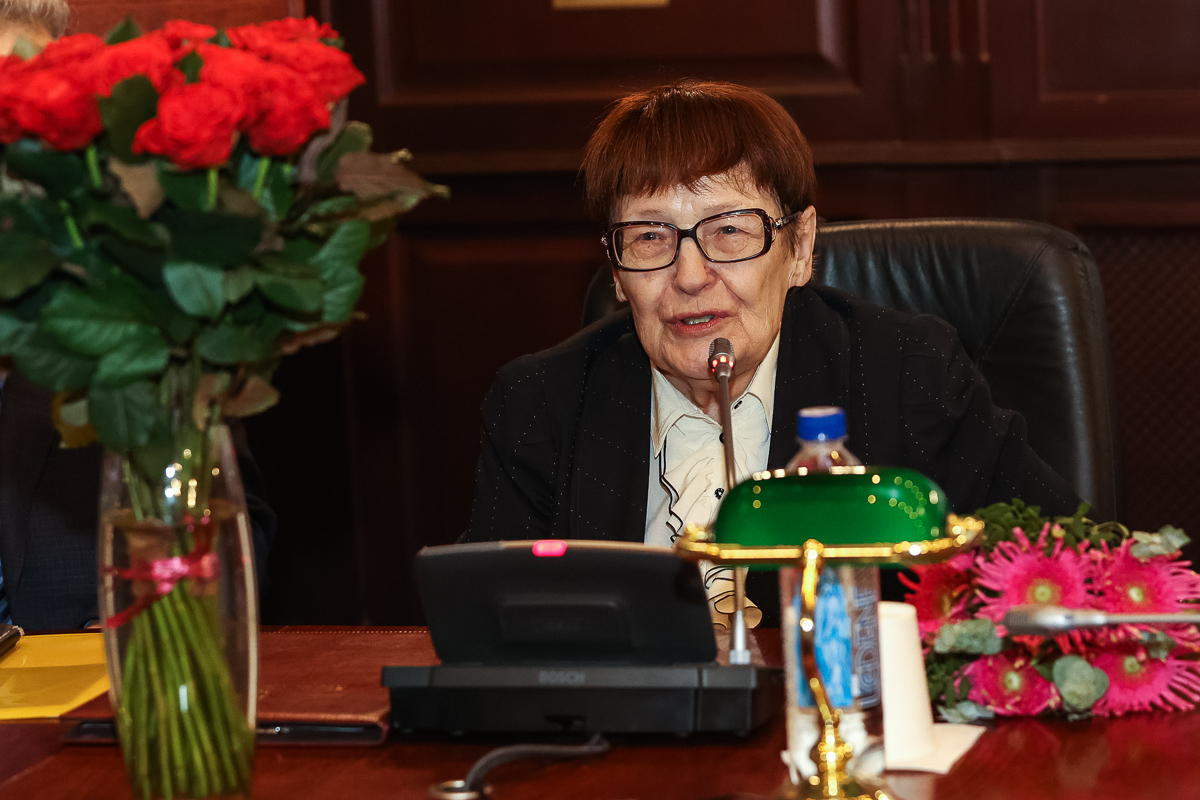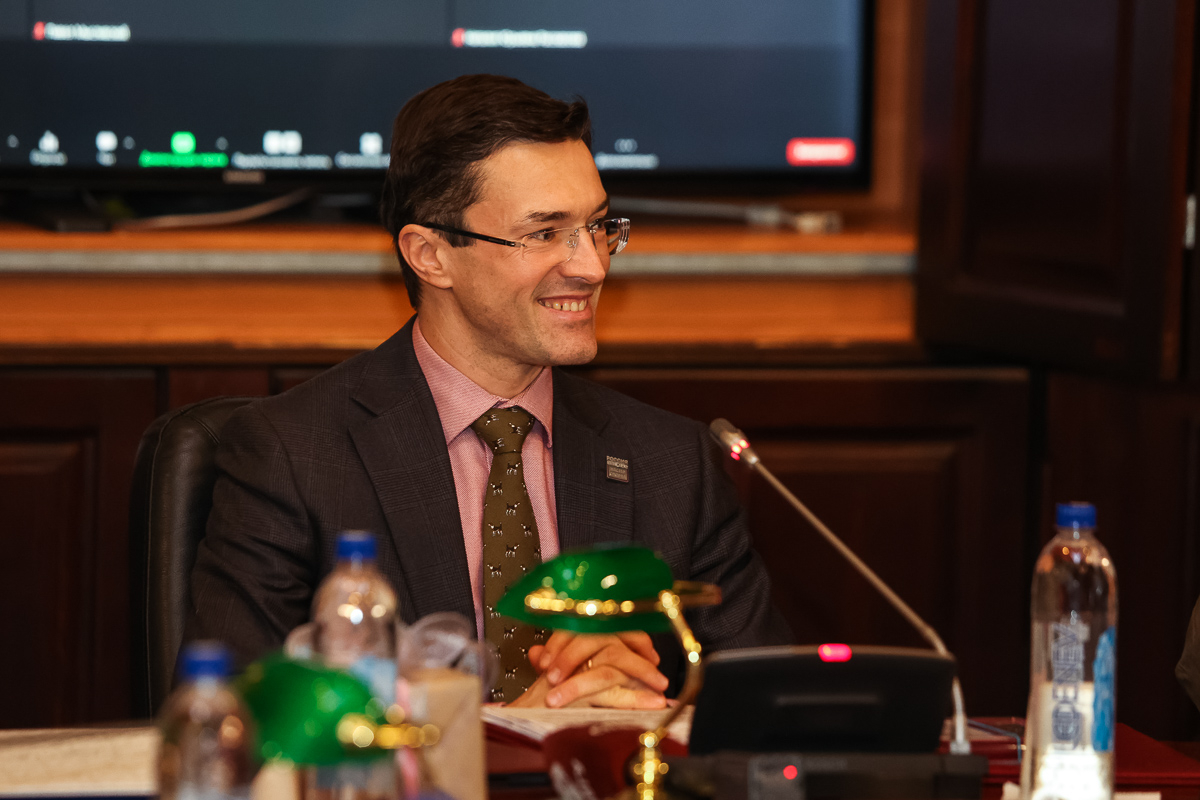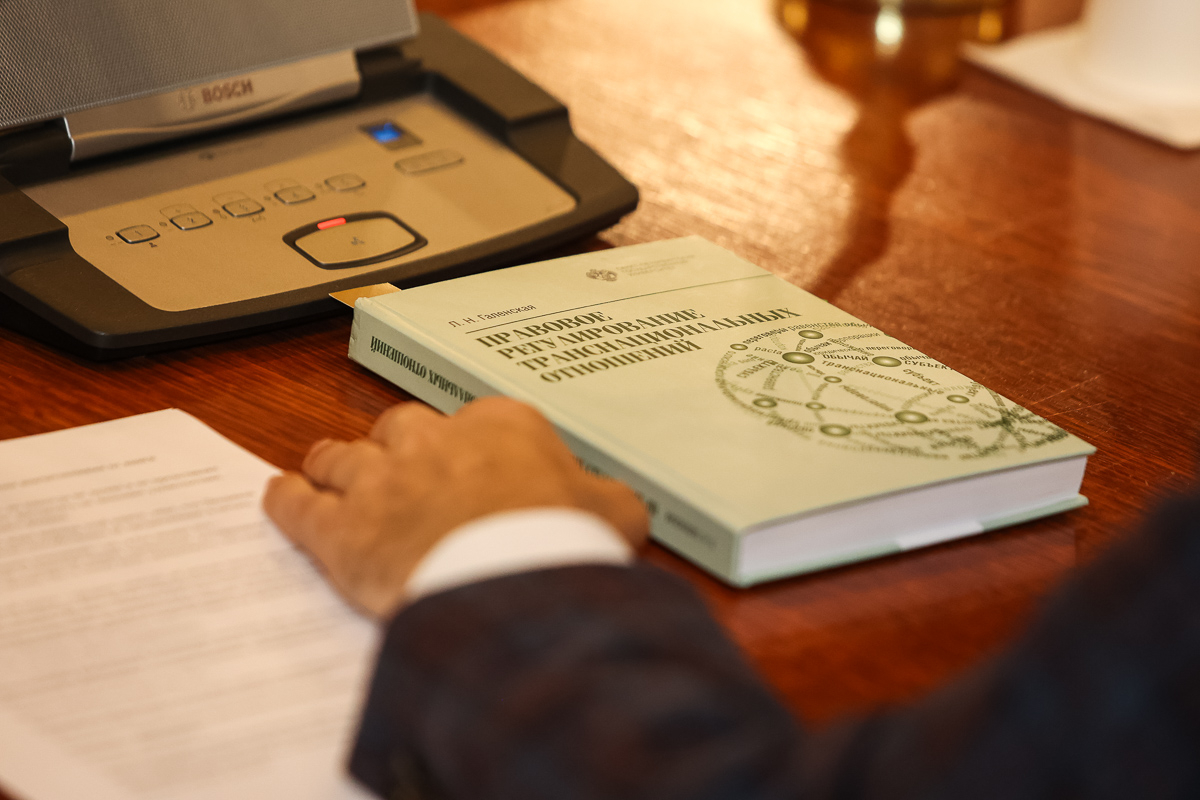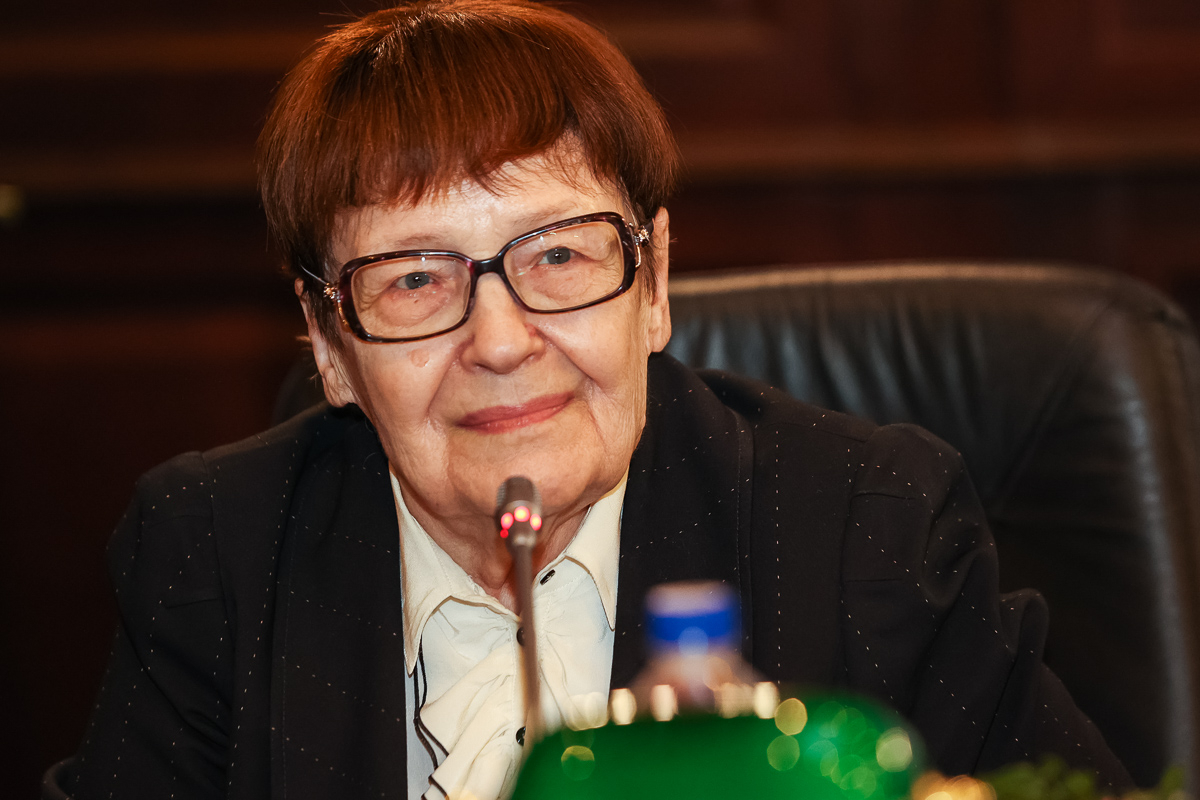Professor Galenskaia: 'When you introduce the concept of transnational law, everything falls into place'
Liudmila Galenskaia, Professor at St Petersburg University and a distinguished international lawyer, has proposed a new concept for understanding the global legal order in her monograph ’The Legal Regulation of Transnational Relations’. In the course of her research, the author came to the conclusion that there are actually three, rather than two systems of justice, as is commonly believed. These include a national legal order, an interstate legal order and, as the new book explains, a transnational legal order.
The discussion of the new concept took place during an extended meeting of the Academic Council of the Faculty of Law of St Petersburg University, dedicated to the 90th anniversary of Professor Galenskaia. Opening the meeting, Sergei Belov, Dean of the Faculty of Law, delivered a congratulatory message sent to the jubilee by President of the Russian Federation Vladimir Putin. As a graduate student of Leningrad State University (now St Petersburg University), Vladimir Putin prepared his graduation project under the supervision of Professor Galenskaia: 'You enjoy a well-deserved reputation as a distinguished expert in international law, a gifted scholar and educator who has made a major contribution to the development of legal science. I recall warmly my years of study at Leningrad State University and I remember you as a true academic mentor who always readily shared your knowledge and experience and set a consistently high professional standard for your students.'
During the meeting of the Academic Council, Professor Galenskaia received a departmental award from the Investigative Committee of the Russian Federation 'For achievements in scientific and educational activities'.
Congratulations to the jubilee was also sent by Aleksandr Gutsan, Presidential Plenipotentiary Envoy to the Northwestern Federal District; Taliya Habrieva, Member of the Russian Academy of Sciences and Director of the Institute of Legislation and Comparative Law under the Government of the Russian Federation; Sergei Markin, Chairman of Federal Arbitration Court of the Northwestern Federal District; Lydia Mikheeva, Head of the Research Centre of Private Law under the President of the Russian Federation named after Sergei Alexeyev and Secretary of the Russian Civic Chamber; Herman Gref, Head of Sberbank; and many other colleagues and students of Liudmila Galenskaia.
In a brief presentation on the main concepts of her monograph, Liudmila Galenskaia noted that she had been writing it for quite a long time: 'Officially, it took three years, but it is really the result of my reflections on international law over many years.' The Professor added that the impetus for writing the monograph came from studying sources on international relations: 'In one of the books, a short monograph by Georgy Shakhnazarov entitled “The Coming World Order” published in 1981, I read that international relations are not limited to relations between states, but are much wider than that, involving non-governmental actors as well. The relations of individuals, legal entities, non-governmental organisations, associations are also subject to some kind of regulation.' For example, if legal entities of different states enter into a contract, this transaction cannot be governed exclusively by the national law of one of the countries.
I have come to the conclusion that there are not two legal orders, international and national, but three. In other words, in addition to these two legal orders, there is also a transnational one, governed by transnational law. When you introduce the concept of transnational law, everything falls into place.
Liudmila Galenskaia, Professor at St Petersburg State University and distinguished international lawyer
In her comprehensive monograph, Liudmila Galenskays conducts an in-depth analysis of the concept of international relations, both interstate and transnational, and examines the system of their regulation, principles, subjects and sources. The research is based on international treaties, national legislation, interstate practice, decisions of international courts, and works of Russian and foreign scholars.
The session included expert presentations by Sergei Bakhin, Professor at St Petersburg University; Innokentii Karandashov, Associate Professor at St Petersburg University; Valentina Talimonchik, Professor at the St Petersburg Branch of the Russian Academy of Justice; Gafur Mansurov, Professor at the Ural State University of Economics; Anatoly Kapustin, Professor, First Deputy Director of the Institute of Legislation and Comparative Law under the Russian Government, President of the Russian Association of International Law; and Liudmila Anufrieva, Professor at Kutafin Moscow State Law University.
Other participants in the meeting of the Academic Council also took part in the discussion of the monograph.
All speakers noted both the novelty of the proposed concept and its importance for further development of the theory and practice of international law.



